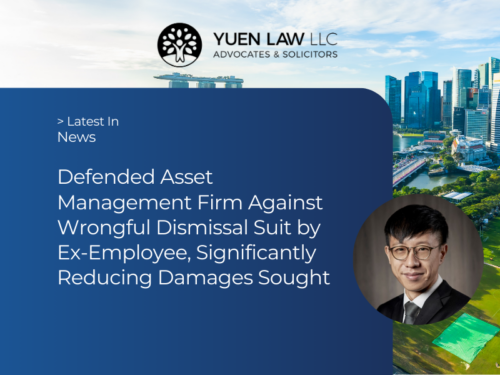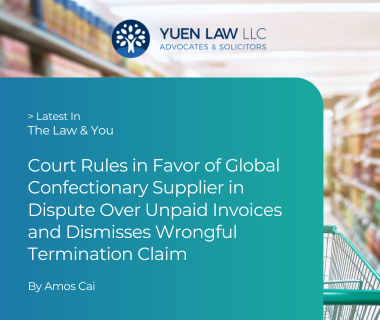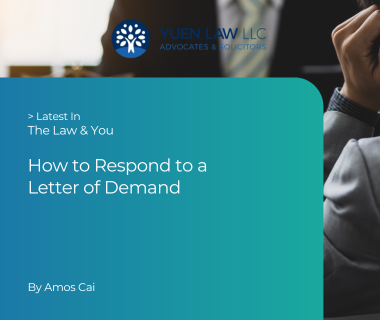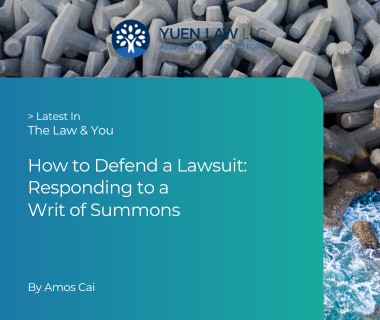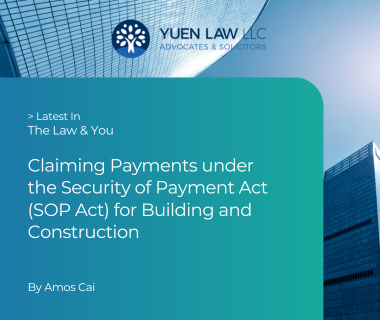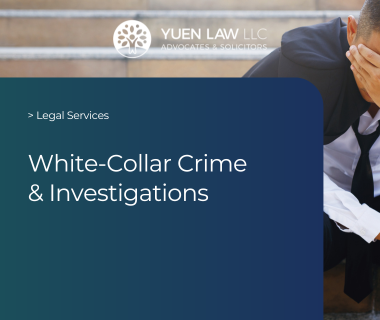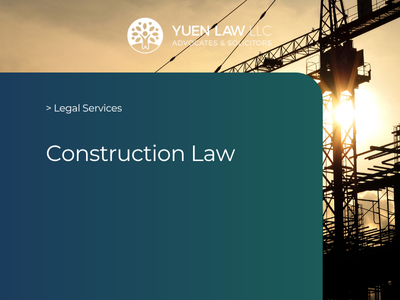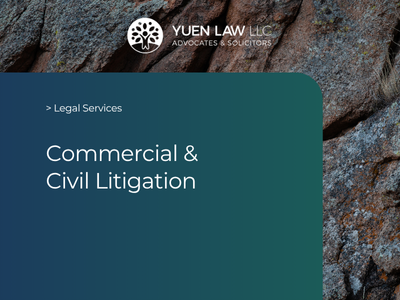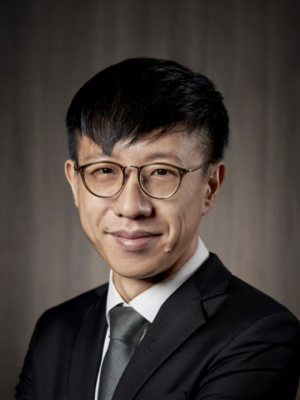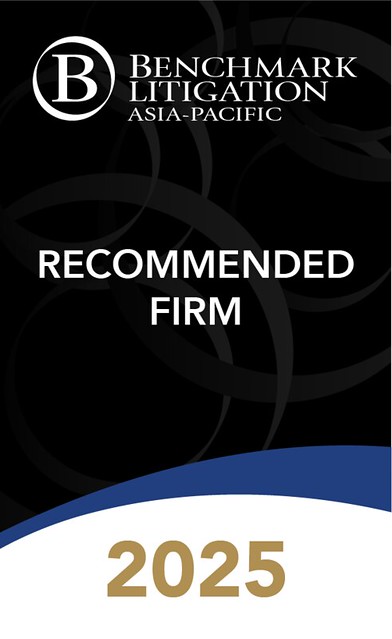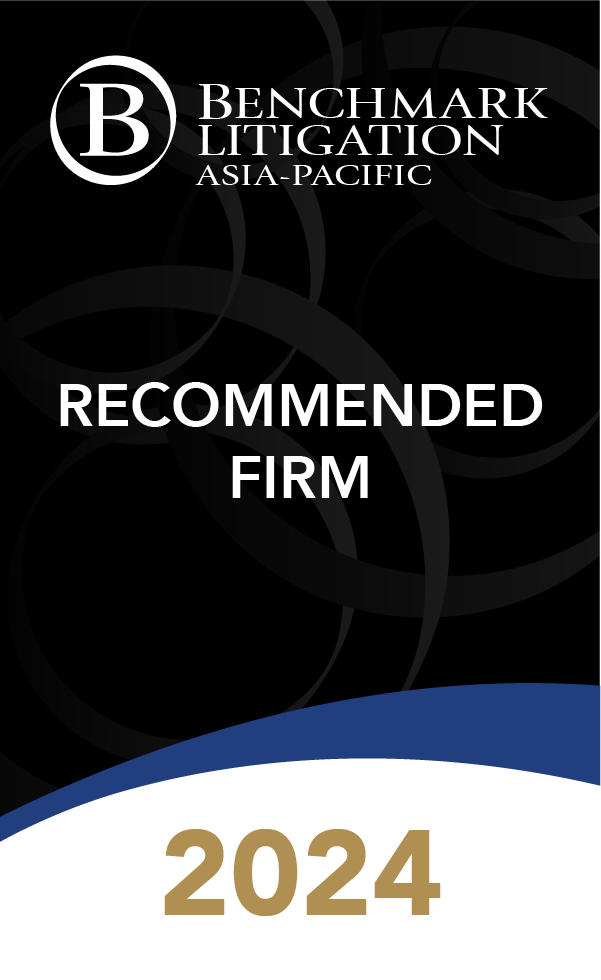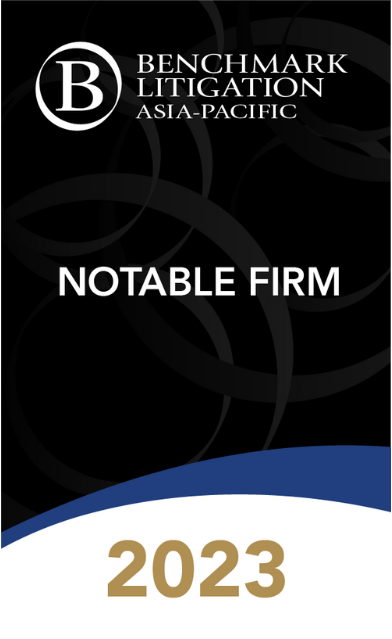
Singapore Arbitration Lawyers with a Strategic Edge
Our arbitration lawyers take immense pride in enabling clients to, in the words of Theordore Roosevelt, “speak softly and carry a big stick”.
Yuen Law’s International Arbitration Practice is dedicated to guiding clients through every facet of their dispute resolution journey. Our team of skilled arbitration lawyers excels at crafting effective strategies, providing counsel through pre-arbitral procedures, advising on the type and seat of arbitration, tribunal formation, conduct of arbitral proceedings, and enforcement of arbitral awards, all while maintaining a commitment to competitive legal fees.
Our arbitration lawyers are well-versed in navigating the intricacies of the arbitration rules and have represented clients in hearings with the Singapore International Arbitration Centre (SIAC) and Singapore Institute of Arbitrators (SIA).
What is Arbitration?
Arbitration is an alternative dispute resolution method in which parties agree to have a neutral tribunal, typically composed of one or three independent arbitrators, make a binding decision on their dispute. It offers parties, a private and confidential way to resolve conflicts instead of going to court.
Arbitration is governed by a set of institutional rules that parties agree upon when they first enter into a commercial contract.
Arbitration vs Litigation
Arbitration allows parties to uphold the confidentiality of their dispute, with private hearings held at neutral venues, and final awards remaining undisclosed to third parties. In contrast, litigation court decisions are made available to the public.
Moreover, arbitration grants parties substantial control, permitting them to choose rules and procedures. Arbitration results in legally binding and enforceable decisions, making it a preferred choice for many.
Arbitration VS Mediation
Mediation involves both parties striving to reach a settlement with the assistance of a neutral third party, known as the mediator. The mediator’s role is to facilitate negotiations rather than impose a decision on the parties. If either party decides to discontinue mediation, they have the option to pursue their dispute in court or arbitration. This differs from arbitration, where an arbitrator renders a legally binding decision on the matter.
Why choose Singapore and SIAC?
Singapore is widely acknowledged as one of the world’s premier centres for dispute resolution, thanks to its robust legislation and a judiciary that strongly supports arbitration. Singapore’s adoption of the United Nations Commission on International Trade Law (UNCITRAL) Model Law, giving it the force of law, demonstrates Singapore’s commitment to adhering to internationally recognised arbitration standards.
SIAC sets the gold standard for arbitration worldwide and possesses an extensive global reach. It is fully equipped to handle complex, cross-border disputes across a wide array of industries. In 2022, SIAC administered 336 new cases, involving a collective US$5.49 billion in disputes.
The SIAC Rules 2016 priorities flexibility and transparency. Parties enjoy complete freedom in selecting their legal representatives for arbitration proceedings. Furthermore, SIAC permits third-party funding for arbitration and arbitration-related court proceedings, provided that these funding arrangements are disclosed and taken into account when allocating costs.
To enhance transparency regarding its fee structure, SIAC has published a comprehensive fee schedule that outlines the fees payable by arbitration parties. These fees are calculated based on the total claim amounts of the involved parties. Parties can easily estimate arbitration costs with the SIAC fee calculator, which provides both average and maximum fees for all involved parties in the arbitration process.
Enforcment of Arbitral Award
An arbitral award is the final decision of an arbitration tribunal. To enforce such an award, one typically registers it with the relevant court in the jurisdiction where the losing party’s assets are located. This process follows the court’s rules and procedures and usually takes place smoothly, especially in jurisdictions that have ratified the New York Convention. Under this convention, courts generally enforce the award without delving into the arbitration tribunal’s reasoning or procedures, except for a few specific technical exceptions that can vary by jurisdiction. Since over 120 countries, including major trading nations, have signed the New York Convention, arbitration awards generally receive more international recognition than many national court judgments.
Our Arbitration Experience
We act for a diverse clientele, encompassing both international and local entities. Our specialized expertise spans a broad spectrum of cases, with a particular emphasis on commercial arbitrations and disputes within the construction and engineering sector.
We represented a prominent building and construction company in a SIAC arbitration against a main contractor concerning unpaid sums for contracted work and additional works performed, as well as a wrongful call on our client’s performance bond. We defended against counterclaims filed by the respondent for alleged failure to provide certain goods and rectification of defects, and successfully negotiated a settlement for the parties involved.
Client Reviews
“Yuen Law offers practical and realistic advice with regard to courses of action and possible outcomes. They provide detailed legal documentation, closely follow up on matters relating to our case, have dedicated staff assigned to our cases, and the assigned partner is experienced in dealing with construction industry cases.”
– Construction client
“They are meticulous in all details. They also are very prompt in their responses, and they also give very sound and practical legal advice.”
– Commercial and transactions disputes client

![Yuen Law Acts for Successful Applicant to Order Sale of Co-Owned Property, Sin Chiau Soon v Aitken Robert Bond [2025] SGHC 94 H2](https://yuenlaw.com.sg/wp-content/uploads/2025/06/Yuen-Law-News-Yuen-Law-Acts-for-Successful-Applicant-to-Order-Sale-of-Co-Owned-Property-1-500x375.png)
